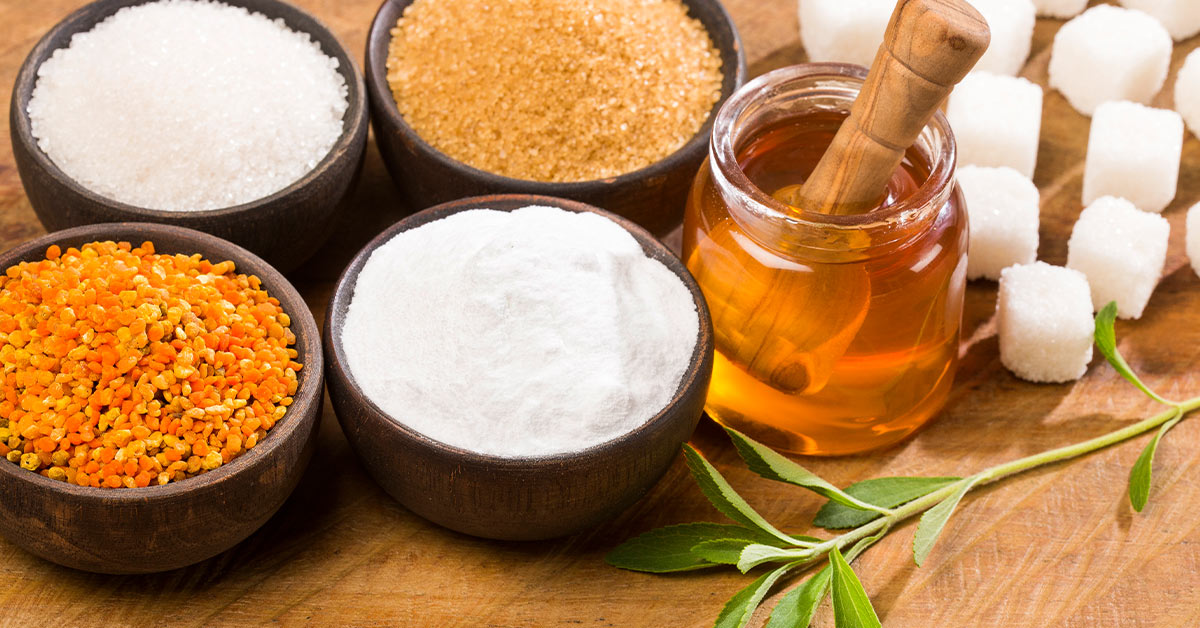WHAT HAPPENS TO OUR BODY WHEN WE CONSUME PROTEIN
The health benefits of it!

Reducing sugar intake can be difficult, but considering how incredibly harmful it can be, it's definitely worth reading on.
The next time you want to add a touch of sweetness to your favorite food or drink, you may want to carefully consider the sweetener you choose.
Fortunately, several naturally occurring sweeteners are actually quite healthy. They are low in calories, low in fructose, and have a very sweet taste.
Most Americans consume large amounts of crystalline sugar in the form of processed sweeteners such as white sugar and high-fructose corn syrup. These sweeteners are often added to sugary drinks, sugary cereals, sweet snacks, and desserts.
Although sweets taste delicious, excessive added sugar can negatively affect health. If you want to reduce your intake of common processed sweeteners like white sugar, there are many alternatives to choose from. Some of them even contain zero or very few calories.
Here are 5 alternatives of natural sweeteners that will become your daily ally for a healthier diet.
Stevia
Stevia is a very popular sweetener with few calories. It is extracted from the leaves of a plant called Stevia rebaudiana. This plant has been cultivated for its sweetness and medicinal properties for centuries in South America.
Several sweet compounds are found in stevia leaves. The main ones are stevioside and rebaudioside A. Both are hundreds of times sweeter than sugar, gram for gram. Therefore, stevia is very sweet but essentially contains no calories.
Moreover, some studies have confirmed that stevia can have health benefits, including:
Blood Pressure: Stevia may help reduce high blood pressure in people with hypertension. However, it does not affect normal or only mildly elevated blood pressure.
Blood Sugar: Stevia could be a useful sugar alternative for people with diabetes and help maintain healthy blood sugar levels. However, some research suggests that stevia may negatively affect gut microbiome. Many people also dislike the taste of stevia.
Honey
Honey is a thick, golden liquid that contains traces of vitamins and minerals, as well as an abundance of plant compounds that provide anti-inflammatory and antioxidant benefits.
Honey compounds, such as honey polyphenols, may help regulate inflammation in your body. Honey also has a slightly lower glycemic index than table sugar. These properties may make it healthier than sugar.
If you choose to use honey, do so in moderation, as it is still rich in sugar and calories.
Maple Syrup
Maple syrup is a thick, sugary liquid made by boiling the sap of maple trees.
It contains a small amount of minerals, such as calcium, potassium, iron, zinc, and manganese. Additionally, it is rich in phenolic compounds like lignans and coumarins, which may have anti-inflammatory and antioxidant properties.
Despite containing some beneficial nutrients and antioxidants, maple syrup is still very high in sugar. It has a slightly lower glycemic index than regular sugar, but like any sweetener, it should be used in moderation.
Molasses
Molasses is a sweet, brown liquid with a thick consistency like syrup. It is made from boiled sugarcane or sugar beet juice. It contains vitamins, minerals, and several antioxidants. Additionally, it is a good source of iron, potassium, and calcium, which are important for the body.
Coconut Sugar
Coconut sugar, a high-nutrient product, has a lower glycemic index (GI) of 350 compared to crystalline sugar (500). It is rich in antioxidants and vitamins B1, B2, B3, and B6, which help fight stress and boost energy. Additionally, it is a good source of the minerals iron, potassium, and calcium, which are essential for various aspects of health.
Source: Healthline